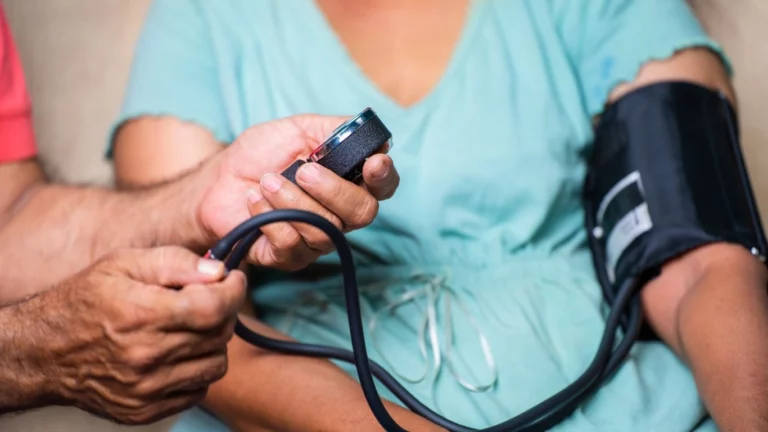Why GERD and Morning Mucus Buildup Could Be Wrecking Your Day
Waking up with a sore throat, thick mucus in your throat, and that burning feeling creeping up your chest? Yeah, I’ve seen that look on patients’ faces way too many times. Working as a Medical Assistant in a busy Gastroenterology clinic, you start picking up patterns — and one of the most frustrating complaints patients have is GERD and mucus buildup in the morning. You’re not alone if you’ve had to clear your throat a dozen times before finishing your first cup of coffee. It’s annoying, uncomfortable, and sometimes downright embarrassing. But there’s a reason behind it, and trust me, once you understand what’s going on, you can actually do something about it.
What Exactly Is GERD?

GERD stands for Gastroesophageal Reflux Disease. It’s more than just the occasional heartburn after spicy wings or a late-night pizza binge. It’s a chronic condition where stomach acid (and sometimes bile) flows back into your esophagus. Over time, this backflow irritates the lining of your throat and airways, which can lead to a whole range of symptoms—mucus buildup being one of the most overlooked.
Why Mornings Are the Worst
Ever wonder why the symptoms feel ten times worse when you wake up? You’re not imagining things. When you lie down at night, gravity’s not working in your favor. That acid? It’s got easy access to creep up your esophagus and even irritate your sinuses or upper throat. Add a dry room, possible postnasal drip, and you’ve got yourself a mucus-fest before breakfast.
- You’ve been lying flat for hours
- Saliva production slows down at night (and saliva helps neutralize acid!)
- Many people eat dinner too close to bedtime
- Acid reflux can trigger excess mucus as your body tries to ‘protect’ the lining of your throat
How GERD Triggers Mucus Production

This one’s a little science-y but stick with me — I promise it’s worth it. When acid reflux hits your esophagus or upper airways, your body reacts like it’s under attack. It tries to soothe and protect your tissues by producing more mucus. Think of it like your body’s way of saying, “Hey, I need to coat this area so it doesn’t burn anymore.”
As someone who’s seen the ENT referral list grow longer every week, I can’t tell you how many times mucus buildup is treated as a sinus issue or seasonal allergies when it’s really underlying GERD in disguise.
Common Signs It’s GERD Causing Your Morning Mucus
- Persistent sore throat without an actual cold
- Feeling like there’s a lump in your throat (globus sensation)
- Needing to clear your throat constantly after waking up
- Hoarseness or voice changes — especially in the morning
- Chronic cough that doesn’t respond to allergy meds
What’s wild is how many folks don’t even realize they have GERD. They’re so used to the symptoms that they write them off — or worse, keep popping throat lozenges like candy. I always tell my patients that treating the source instead of just the symptoms can make a night-and-day difference. Literally.
The Hidden Lifestyle Triggers You Might Be Overlooking

Let’s be real for a second — our lifestyles can be total GERD enablers. From what I’ve seen in clinic, it’s often not about a single trigger but a combo of habits adding fuel to the fire. Here are some of the common ones patients don’t realize are messing with their mornings:
- Late-night snacking: That midnight cookie? Yeah, it’s probably haunting your esophagus by 6 a.m.
- Sleeping flat: Gravity isn’t your friend when acid is trying to back up your throat.
- Alcohol before bed: Relaxing? Sure. Relaxing your lower esophageal sphincter? Definitely.
- High-fat dinners: Fatty foods hang out in your stomach longer and can increase reflux episodes.
One patient told me, “I thought switching to oat milk lattes would help,” but she was still drinking them with a buttery croissant right before bed. Sometimes it’s not about cutting everything out, but knowing *when* to enjoy them and how to adjust your routine.
Simple Morning Fixes That Actually Work

One of the first things I ask my patients when they complain about waking up with that sticky, phlegmy feeling is, “How are your mornings?” You’d be surprised how many folks dive right into coffee on an empty stomach or skip breakfast altogether. Trust me, your morning routine sets the tone for your entire digestive system.
Here are a few things I’ve seen work wonders — not overnight fixes, but steady changes that really add up:
- Start upright: Don’t rush to eat while still half lying on the couch. Sit up straight, or better yet, take a short walk after getting out of bed.
- Warm water with lemon (but careful!): A tiny splash of lemon in warm water can help kickstart digestion. Just avoid it if you notice it triggers your reflux — it’s not for everyone.
- Light breakfast first, caffeine second: A small bowl of oatmeal or toast before your coffee can help protect your stomach lining from the acid surge.
- Hydrate: Sometimes that thick mucus is partly dehydration. A good rinse-through with water first thing in the morning can make a big difference.
I remember one patient, she was a nurse — crazy night shifts and all — and her GERD symptoms were wrecking her mornings. Just by changing her breakfast order and adjusting her coffee timing, she saw major improvements in just two weeks. Sometimes the small stuff really is the big stuff.
Nighttime Tweaks That Help Your Mornings

Let’s back it up a bit. If mornings are bad, it usually means the damage was done overnight. That’s where your bedtime routine can either make or break your reflux symptoms — and yes, that nasty mucus buildup in the morning.
Here’s the advice I share with patients in clinic all the time — and full disclosure, I’ve started following these myself after noticing occasional reflux after my late-night ramen binges (hey, we’re all human):
- Finish dinner 3 hours before bed: I know it’s tough with busy schedules, but try. Even a lighter dinner if you’re eating late can help reduce reflux episodes.
- Elevate your head: Use a wedge pillow or raise the head of your bed by 6-8 inches. Pillows alone won’t cut it — your whole upper torso needs that elevation.
- Watch the booze: Alcohol can relax the lower esophageal sphincter, letting acid sneak up more easily.
- Avoid heavy or spicy foods late: This one’s a no-brainer, but so many of us ignore it. That chili-loaded burrito? Save it for lunch instead.
One guy in his 40s came in swearing he had postnasal drip for months. But once we went over his nightly habit of snacking on cheese and wine before bed, the pieces clicked. Once he cut those out and elevated his bed, the morning mucus all but disappeared.
When to See a Specialist (Don’t Wait Too Long)

I get it — we’re all guilty of brushing off our health sometimes. But if you’ve tried all the lifestyle stuff and you’re still waking up every morning with throat gunk, chest discomfort, or that nagging cough, it’s time to check in with a specialist. Seriously.
GERD isn’t just uncomfortable — left unchecked, it can cause long-term damage to the esophagus. And if that mucus buildup sticks around too long, it can even lead to secondary infections or chronic throat issues.
Red Flags You Shouldn’t Ignore
- Unexplained weight loss
- Difficulty swallowing or food getting “stuck”
- Chest pain that’s not just heartburn
- Constant throat clearing that’s affecting your voice or work
From what I’ve seen in clinic, people usually wait too long — they come in after months of trying to self-treat with antacids or nasal sprays. By that time, their reflux has started to affect their lungs, voice, or sleep quality. Getting scoped by a GI doc can clear up what’s going on fast, and sometimes it’s not even GERD — but something like LPR (laryngopharyngeal reflux) or even a hiatal hernia.
If there’s one thing I’ve learned working closely with our gastro team, it’s this: Don’t guess, test. The sooner you know what you’re dealing with, the sooner you can breathe — and swallow — easy again.
Overlooked Culprits That Might Surprise You

And just when you think you’ve got the reflux thing figured out, there’s always one weird trigger hiding in plain sight. I’ve seen some pretty unexpected stuff over the years, so let me save you the trouble:
- Mint tea at night: Feels soothing, but mint actually relaxes the esophageal sphincter. Who knew?
- Vape pens or “light” smoking: Even without heavy cigarette use, vaping can irritate your upper airways and worsen mucus production.
- Stress: Yep, your gut is basically your second brain. Stress increases acid production and slows digestion.
- Overusing lozenges: They feel like a fix but sometimes worsen throat irritation or dry out the mucosa more.
I had a teenager who was popping cough drops every day thinking they’d help her scratchy throat. It turned out she had silent reflux, and the sugar and menthol in those lozenges were actually making things worse.
Home Remedies & Real-Life Hacks That Can Help

Let’s talk about the stuff you can do at home — the “I-don’t-want-to-start-meds-yet” crowd. Look, I totally get it. Medications have their place (and I’ll cover that in a sec), but a lot of people want to start with simple fixes. And honestly? Some of these home remedies and tweaks work better than you’d expect.
From what I’ve seen working in GI, it’s often a combination approach that gets results. One thing alone might help, but when you layer good habits, your mornings start feeling a whole lot less… gross. Here are some tried-and-true strategies that have helped patients — and even me personally — tackle GERD and mucus buildup in the morning:
- Slippery elm tea: This stuff coats your throat and esophagus in the best way. Helps calm that scratchy, acid-burned sensation and reduces mucus irritation.
- Manuka honey: A spoonful before bed can soothe the throat and has natural antibacterial properties. One of my older patients swore by it — said it gave him the best sleep in months.
- Avoiding dairy before bed: Even if you’re not lactose intolerant, dairy can be mucus-producing for some people, especially when reflux is involved.
- Humidifier at night: Dry air can thicken mucus and irritate your throat. A small bedside humidifier can really help keep things flowing.
Keep in mind, not all remedies work for everyone. I always tell patients to try one change at a time — that way, you know what’s helping and what’s just extra noise.
When Medication Is the Right Move

Okay, let’s talk meds. Because for some folks, lifestyle and home tricks just don’t cut it. And that’s not a failure — it’s just biology. When GERD is more advanced, or mucus buildup is constant and affecting your breathing, your provider might recommend medication.
Common Prescription & OTC Options:
- PPIs (Proton Pump Inhibitors): These reduce acid production long-term. Think omeprazole or pantoprazole.
- H2 blockers: Ranitidine used to be popular, but famotidine is now the go-to option.
- Antacids: Good for quick relief, but not a long-term fix.
I’ve seen a lot of people scared to start PPIs because of things they read online. And yes, long-term use should always be supervised. But used correctly and with routine check-ins, they can really give your esophagus the healing time it needs.
There was this one teacher I remember — she had such bad reflux that she’d lost her voice multiple times. Her mucus was so thick she couldn’t speak clearly before noon. With the right PPI and some lifestyle shifts, she was finally able to teach without sipping water every 5 minutes. It was a game-changer.
Trust Your Gut — But Also Your Team
One thing I love about working in a gastro clinic is how much teamwork goes into helping people feel better. We don’t just throw meds at patients. We walk them through the real reasons behind their symptoms, check their labs, sometimes refer to ENT or pulmonology if needed. You should never feel like you’re dealing with this alone.
If your primary care doctor doesn’t bring up reflux or morning mucus, bring it up yourself. The sooner you start investigating, the sooner you’ll stop waking up with that icky glob stuck in your throat. Trust me — I’ve seen it over and over again.
Helpful Resources and Expert-Backed References
If you’re ready to dig deeper or need help navigating your next steps, here are a few reliable places to start:
- National Institute of Diabetes and Digestive and Kidney Diseases (NIDDK)
- Cleveland Clinic
- Mayo Clinic
- WebMD
All of these have trustworthy info that’s written for patients — not just packed with medical jargon. And when in doubt, talk to your healthcare provider (or your friendly neighborhood GI clinic team — we’re not scary, I promise!).
Disclaimer
This article is for informational purposes only and is not intended to replace professional medical advice, diagnosis, or treatment. Always consult with a qualified healthcare provider regarding any medical condition or health concerns. The experiences shared are from my time working as a medical assistant in a gastroenterology setting and are meant to supplement — not substitute — expert care.

Camellia Wulansari is a dedicated Medical Assistant at a local clinic and a passionate health writer at Healthusias.com. With years of hands-on experience in patient care and a deep interest in preventive medicine, she bridges the gap between clinical knowledge and accessible health information. Camellia specializes in writing about digestive health, chronic conditions like GERD and hypertension, respiratory issues, and autoimmune diseases, aiming to empower readers with practical, easy-to-understand insights. When she’s not assisting patients or writing, you’ll find her enjoying quiet mornings with coffee and a medical journal in hand—or jamming to her favorite metal band, Lamb of God.







